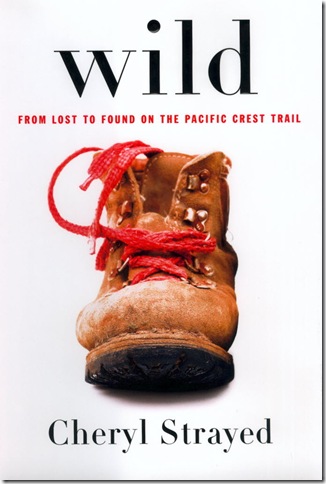Cheryl Strayed grabs the reader on the first page of this absorbing book when she describes an unfortunate incident during her 1995 trek along West Coast mountain ranges.
Strayed had removed her hiking boots to rest when suddenly one of the boots slipped over the edge of a cliff. Realizing that the other boot was now worthless, she tossed it off the side of the mountain, forcing her to walk miles in sandals fastened to her feet with duct tape.
After that dramatic opening scene, Strayed circles back to the traumas that led her to hike more than 1,000 miles in California and Oregon under an enormous backpack she dubbed the “monster.”
Strayed was 22 when her mother died of cancer, sending her into a tailspin of anger and depression. In the hospital, “I howled and howled and howled, rooting my face into her body like an animal.” Over the next four years, Strayed cheated on her husband, had an abortion, got hooked on heroin and went through a divorce.
She desperately wanted to go “back to the person I used to be – strong and responsible, clear-eyed and driven, ethical and good.”
After reading about the Pacific Crest Trail, which traverses mountains from Mexico to Canada, she decided to hike it, even though she had zero experience as a backpacker.
She adopted a new last name, Strayed, because it reflected her regret about how far she had strayed from the life she craved.
Her descriptions of the extreme physical and mental hardships of life on the trail keep the reader turning the pages. She confronted rattlesnakes, and trudged over ice and snow on some days, and through 100-degree heat on others. She eventually covered up to 20 miles a day.
The physical toll humbled the author. She lost six toenails. Her body was covered with blisters and her hair was “dense as a burlap bag” after weeks without a shower.
Early on she wanted to quit, believing that the hike had been “an outlandishly stupid idea.” Many days she was so sore in the morning that she could barely stand up, feeling like “a very old woman.”
A friend mailed packages of supplies to stops along the way, but Strayed still was constantly starving and short of money. Dehydrated food began to taste like “warmed-up cardboard.”
 Strayed’s prose sparkles. Reflecting back on the day her divorce became final and realizing she still loved her ex-husband, she remembers, “Afterwards, we leaned against the cold bricks of a building and kissed, crying and murmuring regrets, our tears mixing together on our faces.”
Strayed’s prose sparkles. Reflecting back on the day her divorce became final and realizing she still loved her ex-husband, she remembers, “Afterwards, we leaned against the cold bricks of a building and kissed, crying and murmuring regrets, our tears mixing together on our faces.”
One can’t help but admire Strayed’s determination despite the obvious hardships, and yet she never comes across as boastful. Rather, one senses genuine humility and acknowledgment of her shortcomings.
Some readers may be put off by Strayed’s liberal use of the “f” word, as well as her craving for sex, which was fulfilled by a man she met along the trail.
The ending disappoints. The phrase “from lost to found” leads one to expect a more dramatic change. For sure, her self-image improved. “I didn’t feel like a big fat idiot anymore,” she writes.
On the final pages she discloses that she married again four years after the hike. She and her husband now have a son and daughter, and the four of them visited the spot where she had ended her hike 15 years before.
One wonders if Strayed will use her abundant talent as a writer to pen a memoir of her post-trail life.
Wild: From Lost to Found on the Pacific Crest Trail, by Cheryl Strayed; Knopf, 315 pp.; $25.95
Bill Williams is a free-lance writer in West Hartford, Conn., and a former editorial writer for The Hartford Courant. He is a member of the National Book Critics Circle and can be reached at billwaw@comcast.net.
